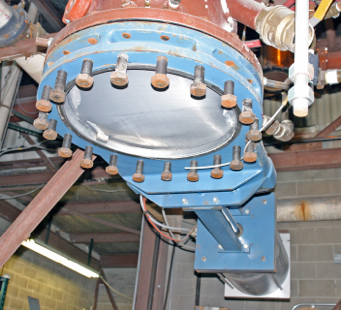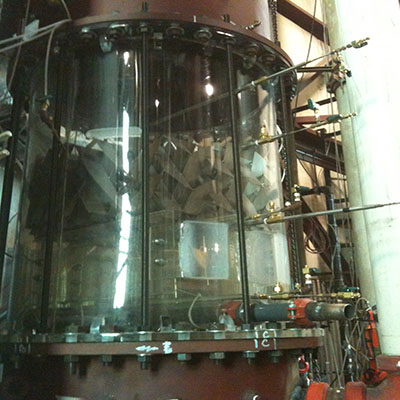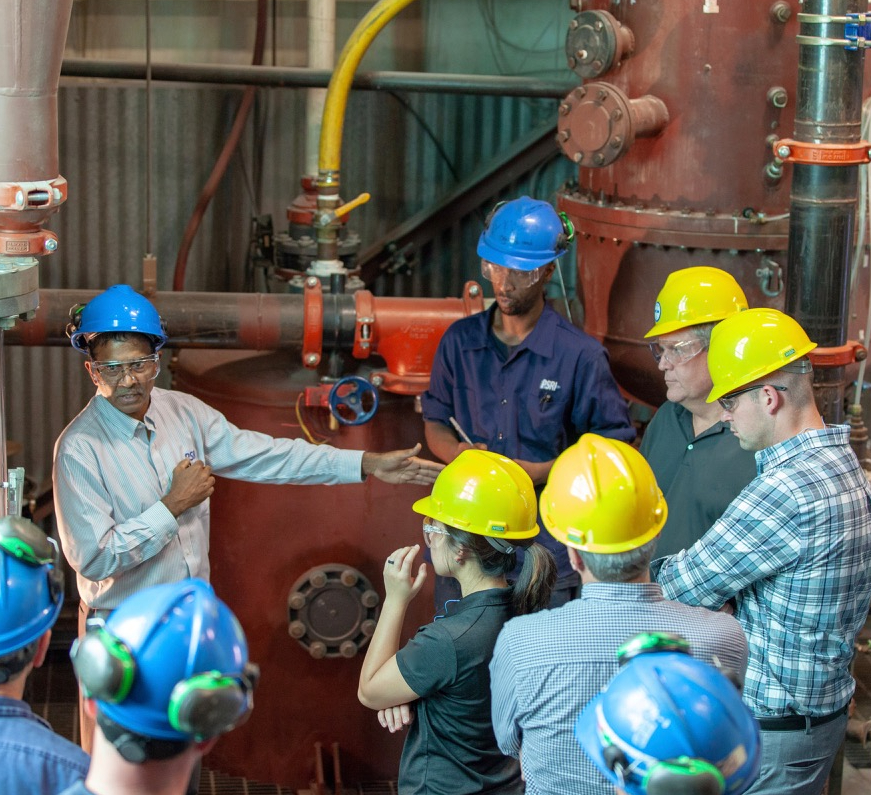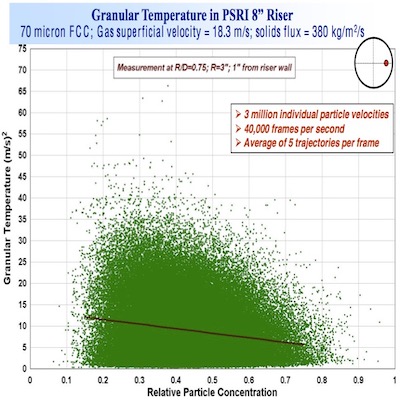
June 22, 2010
Standpipes have been in use for over 60 years. The standpipe was invented by a research team from the Jersey Standard Company in the 1940s working on feeding cracking catalyst into fluidized beds to produce gasoline for the war effort. The primary purpose of a standpipe is to transfer solids from a region of lower pressure to a region of higher pressure. Standpipes are usually part of circulating fluidized bed systems. In addition, cyclone diplegs are essentially overflow standpipes. Historically, standpipes, including cyclone diplegs, have proven to be more problematic than other components of fluid-particle systems. PSRI has conducted systematic research on vertical, angled, and hybrid standpipes over the past 25 years to gain more insight into the design and reliable operation of these standpipes. PSRI has conducted experiments to understand the operation of standpipes and to develop design correlations.
Tests revealed that the two most important design aspects of standpipes are: 1) proper inlet geometry to minimize the dragging of voids into the standpipe, and 2) the amount and distribution of the external aeration to overcome gas compression.
Industry continues to demand greater reliability and often higher solids transfer rates from their fluidized solids transfer systems. Improved troubleshooting tools will help make better use of time and help bridge the knowledge gap where experience is low. The PSRI standpipe program attempts to meet this need by conducting fundamental research, and testing and analysis in the following areas:
-
•Inlet Geometry & Performance Predictions
-
•Optimum Aeration for: Group A vs. Group B vs. Group A/C Materials
-
•Internals to Improve the Permeability of Gas into the Emulsion Phase
-
•Effect of Gas Pressure on Standpipe Pressure Build-Up
-
•Development of an Improved Standpipe Correlation
-
•CFD Analysis







